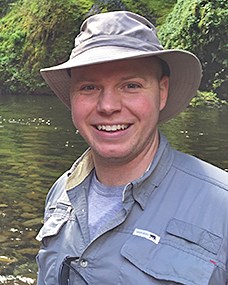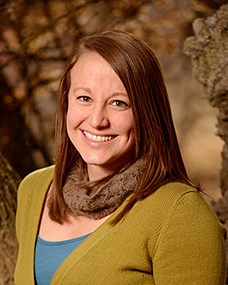Addressing increasing visitor use by integrating social science and resource stewardshipLandscape scale habitat fragmentation, visitor use and associated infrastructure. 
Dr. Evan BredewegDr. Evan Bredeweg recently earned his PhD from the Department of Fisheries and Wildlife at Oregon State University. He is an ecologist specializing in animal movement and behavior. His dissertation research examined environmental and community factors that shape the movement of recently metamorphosed frogs and explored the implication of these movements in future conditions. Dr. Bredeweg’s research background has ranged from conservation biology of the endangered Tuatara in New Zealand to antipredator behavior of tadpoles. Throughout his research, the dynamic nature of animals interacting with their environment has been a key aspect in his work. Dr. Bredeweg plans to incorporate a perspective of animal behavior into the assessments of the impacts of human-wildlife interaction within national parks. Additionally, he hopes to provide accessible methodologies to allow managers to tailor this approach to their specific priorities.
Dr. Ashley D’AntonioDr. Ashley D’Antonio is an Assistant Professor of Nature-Based Recreation Management in the Department of Forest Ecosystems and Society at Oregon State University. She is a recreation ecologist with her work focusing on understanding how outdoor recreation impacts the environment and how to mitigate and manage for those impacts. She specializes in using interdisciplinary and spatially-based approaches, such as GPS and GIS, to understand visitor behaviors and the ecological consequences of those behaviors to park resources. Dr. D’Antonio strives to not only advance visitor use management research but also to provide park and protected area managers with useful new knowledge and tools. She hopes that managers can use her research to better protect natural resources while continuing to provide quality recreation experiences to visitors in parks and other protected areas. |
Last updated: January 9, 2020
